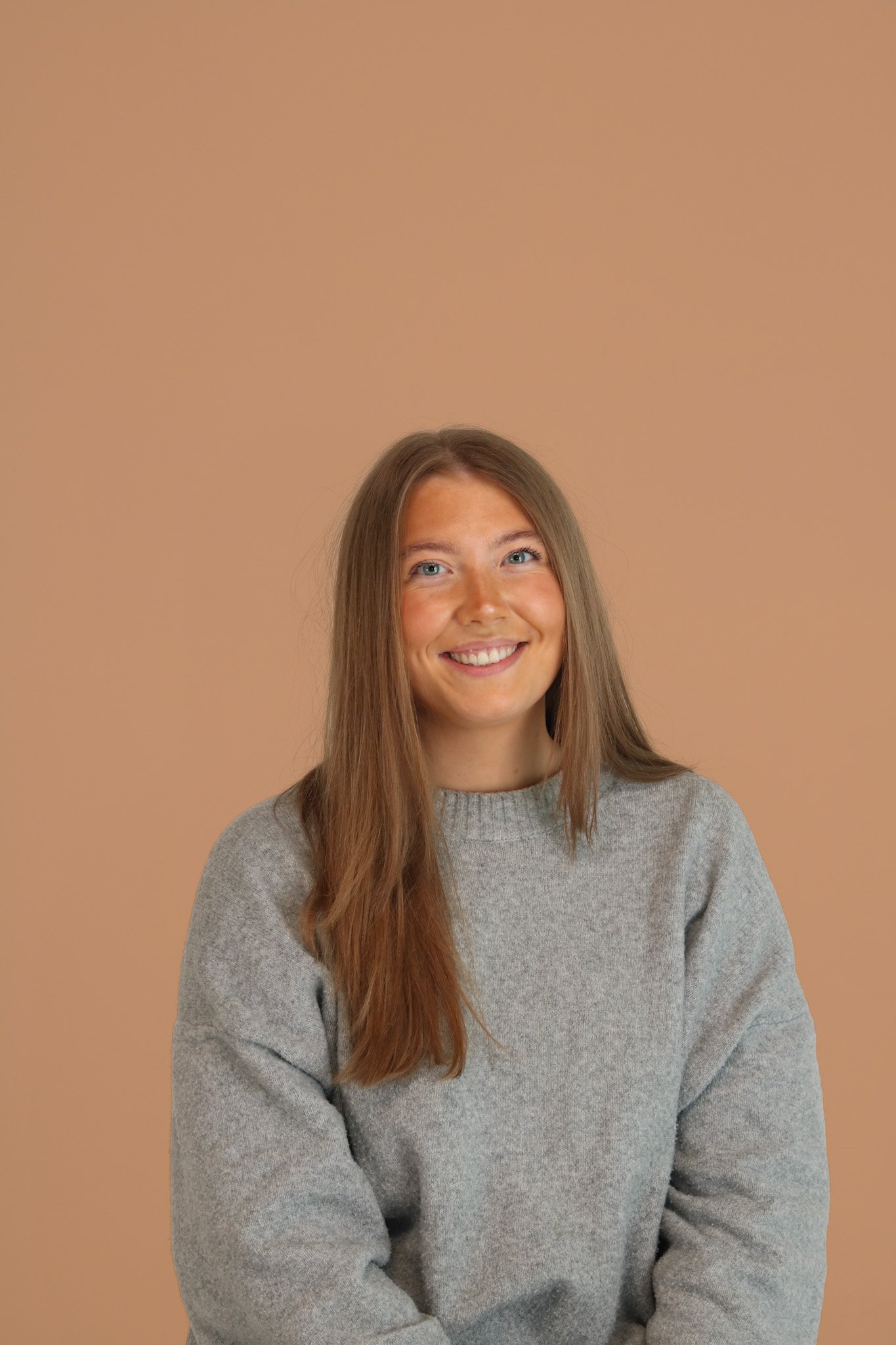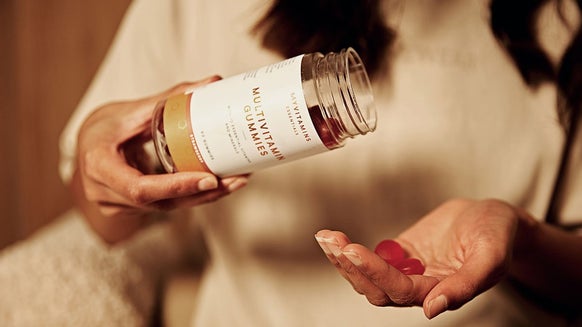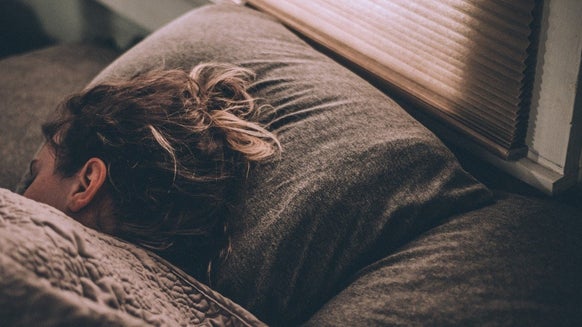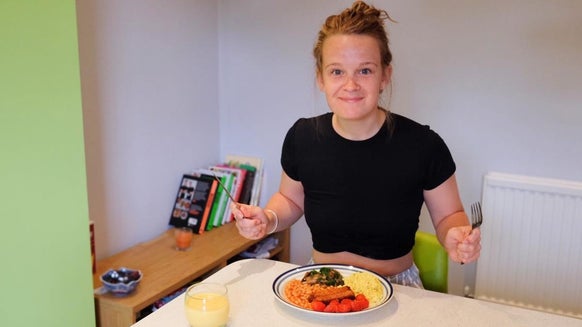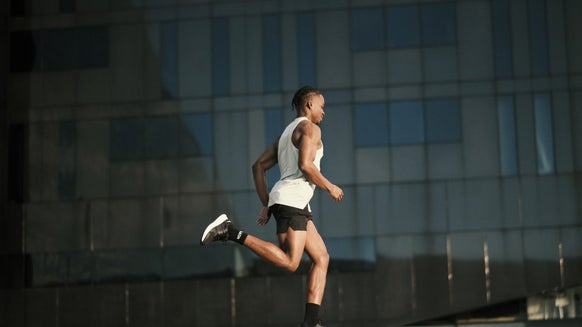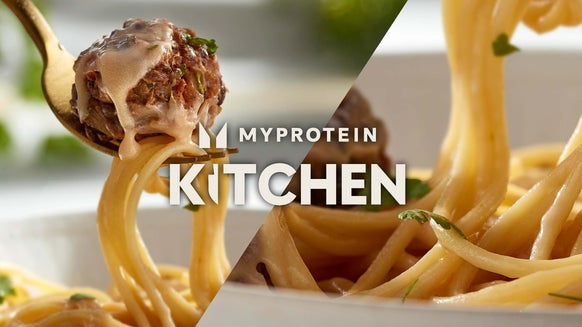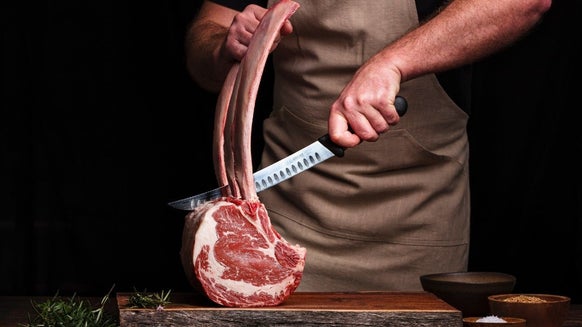Why LGBTQ Fitness Spaces Matter
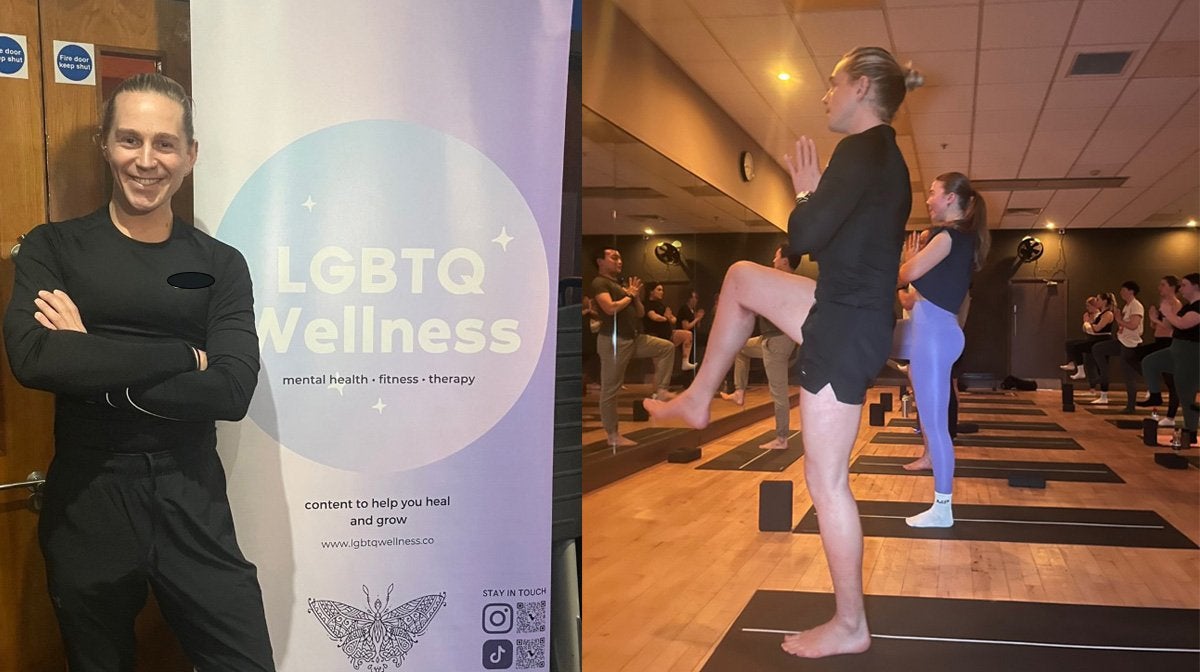
LGBTQ Wellness was founded with the aim of saving lives in the LGBTQ community. The group runs exercise classes and publish free resources on their website to help LGBTQ people navigate wellness and mental health, particularly through fitness.
James explains: “We’re not therapists or counsellors, and we don’t provide medication. Those things are good to help you, but what we do is give people purpose outside of that, to create spaces that let people know they’re safe. So, even if their mental health is a mess, they can come to our yoga and our spin, and they don’t have to do anything else. They can just sit there and be with the energy.”
LGBTQ Wellness recognise that mental health is a major concern within the LGBTQ community. The organisation offers support and resources for members who are struggling with mental health issues. By providing a safe and supportive environment, they hope to help LBGTQ people feel more connected and less alone.

James is open about the difficulties many LGBTQ individuals face. “The pattern that we’ve learnt from a really young age is that we are different and we’re not like everyone else. And even though we’ve got more rights these days, there is still that deeply rooted belief that we’re not right and we’re not normal. It is so ingrained in the community, at such a deep level.”
Unfortunately, this can often lead to other issues, like substance addiction. There's a lack of guidance and mentorship teaching people to be safe. James believes that substance abuse is linked to mental health problems within the community, which often leads to vulnerable people taking their own lives.
But he’s working to change this. “We need to start teaching people how to have a healthy relationship with the queer culture we’ve created.”
James believes that fitness can be an important tool for mental health and wellness in the LGBTQ community. He sees fitness as a way to connect with others, build relationships in a safe, inclusive environment, and take the first steps towards wellness.
“We slowly coax people into fitness and wellbeing — then they start to look at the other work we do, such as mental health work, wellbeing and self-care. And they go, ‘Oh, there’s more to this.’ Fitness is the first building block, and then we bolt more on.”
LGBTQ Wellness offer a range of classes, from yoga to spin, in order to provide as much variety as possible. James personally believes that spin is a way to have fun and let go, while yoga is about introspection and self-care.

Members of the LGBTQ community can face additional pressures when trying to get involved in fitness. And different sexualities and gender identities meet different barriers.
“People who are gay and cisgender have changing facilities that generally they feel comfortable going into,” says James. “But the mental barrier that those people have, having spent their lives feeling like they don’t fit in, sits within the human being. They have to overcome that self-doubt.”
And for trans and non-binary people, these obstacles are often physical as well as mental.
“It’s so much harder for that part of the community because a lot of those people experience a fundamental gender dysphoria within their body. So, people experience this disconnection with their body.
“And then there’s also no changing facilities for those people. If someone’s transgender and transitioning, or if they’re not transitioning and they’re a transgender man, and he’s using a binder, he immediately feels self-conscious because he thinks everyone’s looking at him. It sets people up for failure from the outset.”
All of this can make getting to the gym a hard task for LGBTQ people, so creating safe, inclusive spaces is key. “To try and encourage people into a gym, when they’ve already got that concern that they don’t blend in — it's tough. So, we create that space to coach them in and introduce them to it.”
And so far, James’s efforts have had great success. “A lot of people have now gone on to get their own gym memberships, and they train on own. That’s what we want.”
James believes that gyms need to do more to create a welcoming and inclusive environment. Partnering with groups like LGBTQ Wellness is a good first step. They could also offer classes specifically designed for the LGBTQ community, but these must be done right to have a positive impact.
"It's not just about fitness when you bring in LGBTQ people," he says. "There are barriers you need to overcome to make people feel welcome. You don't just put a rainbow flag on a class and think it gets people through the door."
Creating an inclusive gym environment for LGBTQ people requires understanding and addressing the unique challenges they face. By taking these steps, gyms can play a valuable role in improving both the physical and mental health of members of the community.
For members of the LGBTQ community, finding a gym or fitness space that is accepting and inclusive can be a challenge.
“They are so accepting and inclusive. And they’ve made an active effort to make it a safe space for people from the second they walk through the door at reception. I think that’s lovely. And I haven’t had that everywhere.”
The yoga was challenging, but it was a completely judgment-free zone. Trevor spoke to us throughout, encouraging us to smile when the positions got hard or make jokes when they got silly. It’s hard to keep a straight face when you’re doing a baby cradle pose.
The last 10 minutes of the class were dedicated to meditation, a calming and perfectly fitting way to round off the session. Afterwards, I had the chance to talk with Trevor.
“I want to make sure it’s something fun, enjoyable, challenging at the same time. Celebrating love, celebrating movement, celebrating the way we are a group. We only come together twice a month so when we are together, I want it to be enjoyable for everyone.”

James is adamant safe spaces work. He gets emotional when he talks about the impact he’s seen them have on members of the community.
“People are so grateful for what we’ve created for them. They’re also now part of the journey and they are supporting it — everyone is doing their own little part in pushing it and making it happen.’
The feedback James gets from grateful attendees is further proof of the positive effect of these safe spaces. “There isn’t a week goes by where I don’t get messages from people saying, ‘What you’re creating has just turned my life around.’ And it’s because people needed it.”
For those feeling isolated from fitness, James says there’s always a way to get into fitness and wellbeing, regardless of the obstacles.
“I can give my word that there is always a route to get into fitness and wellbeing. No matter what individual struggle or self-doubt you are experiencing from your sexual or gender identity — whether it’s mental, physical, or a lack of facilities — there is always a space that we can fight for.
“You just need to build up the courage to do it. And if you need anything, I'll help you along the way.”
Fitness can be a valuable tool for people within the LGBTQ community struggling with their mental health and wellbeing. By moving their bodies, finding themselves, and building a sense of community, members can gain confidence and support their mental health.
James knows this all too well, seeing first-hand how fitness can help save the lives of LGBTQ people.
Got some more time?
READ THESE NEXT:
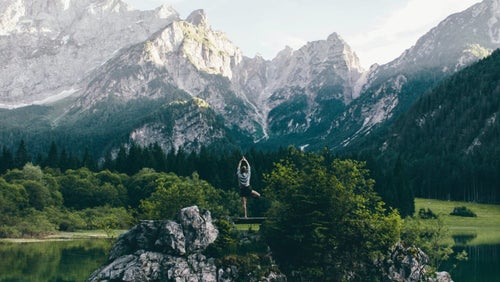
Mental Health Helplines
Remember, it's alright not to feel alright sometimes. If you need to talk, here are some free contacts you can get in touch with.
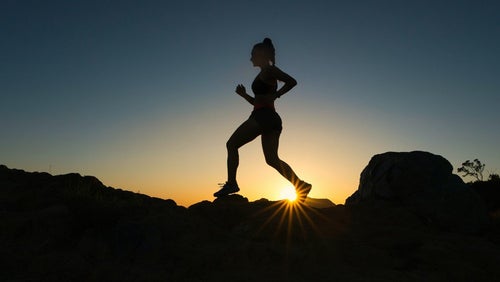
Running for Anxiety | What You Need to Know
PT explains the correlation.
